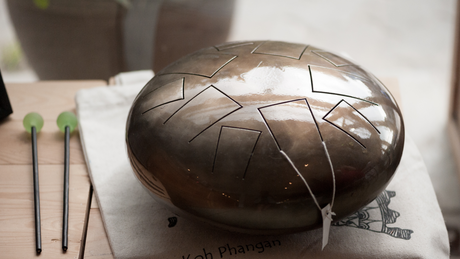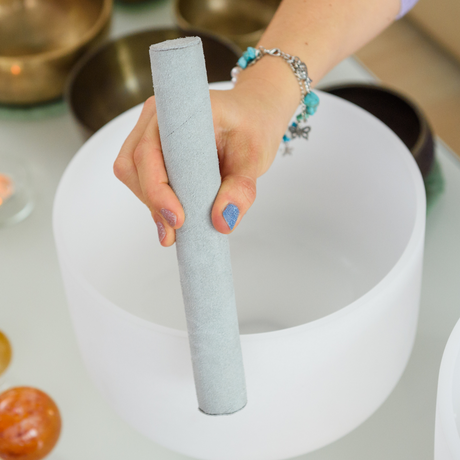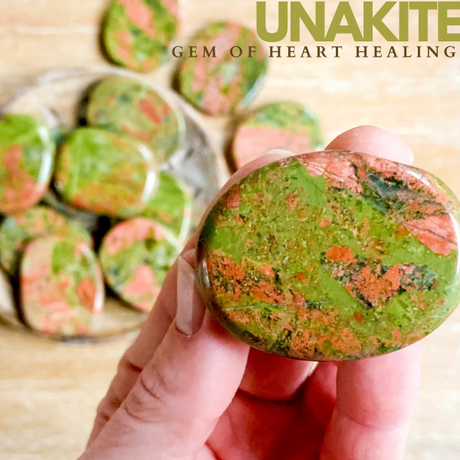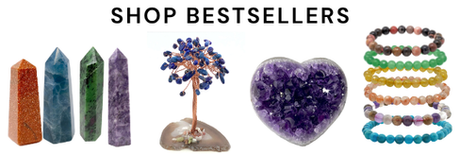Agate is a banded form of chalcedony, a microcrystalline variety of quartz known for its vibrant colors and layered patterns. It’s one of the most visually striking and versatile stones found in nature—used for centuries in jewelry, decor, and spiritual practice. But what exactly is agate, and why has it captivated humans for so long?
What Is Agate?
Agate forms when silica-rich water fills voids in volcanic rocks. As this liquid slowly hardens, it deposits layers of minerals in rhythmic succession, creating the distinctive bands that make agate so recognizable. Over time, each layer records subtle changes in mineral content, temperature, or chemistry, like a geological fingerprint.
While all agate is technically chalcedony, not all chalcedony is banded—this layered structure is what makes agate unique.

Where Is Agate Found?
Agate is found worldwide, but notable deposits exist in:
-
Brazil – known for large, colorful geodes
-
India – producer of traditional agate crafts
-
United States – especially in Oregon, Montana, and Arizona
-
Mexico, Madagascar, Uruguay – all known for distinct varieties
The diversity of locations leads to a wide range of agate types and appearances, some prized for their clarity, others for their rich, opaque patterns.
Agate Colors and Varieties
Agate appears in nearly every color, often with concentric or wave-like banding. Common shades include:
-
Blue Agate – calming, often associated with communication
-
Moss Agate – green inclusions resembling moss or foliage
-
Botswana Agate – subtle grays and pinks in fine bands
-
Fire Agate – iridescent with a fiery inner glow
-
Crazy Lace Agate – bold, swirling patterns, often red, yellow, or white
Some agates are dyed to enhance color, but many are naturally vibrant due to the minerals present during formation.
Agate Throughout History
Humans have used agate for over 3,000 years. In ancient Mesopotamia and Egypt, it was carved into amulets, seals, and beads. The Greeks and Romans used it for cameos and intaglios. In medieval times, agate was believed to guard against storms, calm the mind, and bring favor from the gods.
Its durability also made it functional: agate was once used to make tools, mortars, and knife handles—proof that beauty and strength can coexist.
Metaphysical and Healing Properties of Agate
Agate is often called a “stabilizing stone.” While interpretations vary, common associations include:
-
Emotional Balance: Said to soothe anger, anxiety, and stress
-
Mental Clarity: Used in meditation to improve focus and insight
-
Grounding Energy: Helps anchor the spirit to the present moment
-
Physical Healing (Anecdotal): Believed by some to help with digestion, headaches, and skin issues
While scientific evidence is lacking, many find agate’s energy calming, especially when worn or held during meditation.
How to Use Agate in Daily Life
Agate isn’t just beautiful—it’s functional and adaptable. Here are common ways to incorporate it into your space or routine:
-
Jewelry: Agate pendants, bracelets, and rings are durable and eye-catching
-
Home Decor: Polished slices, bookends, and sculptures add natural elegance
-
Mindfulness Practices: Carry a small stone or use agate in your meditation altar
-
Feng Shui: Placed strategically in the home, agate is believed to stabilize energy
At Rare Earth Gallery, you'll find agate in all forms—from jewelry that tells a story to statement pieces that elevate a room.
Is Agate the Right Stone for You?
Agate is one of the most accessible and affordable semi-precious stones, making it ideal for collectors, spiritual seekers, designers, and gift-givers alike. Its variety ensures there's an agate out there for everyone—whether you're drawn to soothing blues, earthy greens, or fiery reds.
If you’re looking for something beautiful with a story, agate is a natural choice.
Explore Agate at Rare Earth Gallery
Our curated collection of agate includes both one-of-a-kind pieces and timeless designs. Shop with confidence, knowing that each stone was selected for its color, craftsmanship, and authenticity.

















